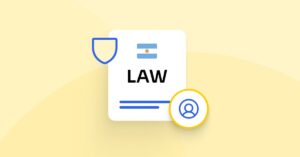What Are Internet Cookies?
Internet cookies, also known as browser cookies or web cookies, are small text files stored on a user’s device by a website’s server. The user’s web browser plays a crucial role in managing these cookies and determining how they are stored and transmitted.
They enable websites to collect user data, remember preferences, and provide a personalized browsing experience.
These cookies were first introduced in the mid-1990s to address challenges in storing user-specific data and enabling session management. They have since become a cornerstone of modern web functionality, allowing website owners to track user behavior, collect analytics data, and enhance user interaction. Understanding the different types of internet cookies is crucial for internet users, website owners, and developers alike.
Definition and Brief History of Internet Cookies
Cookies typically contain small amounts of data, such as login credentials, user preferences, or tracking identifiers, that help the web server recognize the user on subsequent visits. Their primary purpose is to streamline user experiences and improve website functionality.
The concept of cookies was introduced in 1994 by Lou Montulli, a developer at Netscape Communications. Initially designed to manage user sessions, cookies have evolved significantly, playing a key role in data collection, advertising, and cross-site tracking. Today, they are subject to privacy regulations such as the California Consumer Privacy Act (CCPA), which mandates user consent for non-essential cookies.
Importance of Understanding Internet Cookies
Understanding internet cookies is crucial for both website owners and users. For users, cookies play a significant role in enhancing their browsing experience by personalizing content and remembering preferences. However, they also raise privacy concerns, especially with third-party cookies used for tracking and advertising. By understanding the different types of internet cookies, users can make informed decisions about their online privacy and user experience. On the other hand, website owners can ensure compliance with privacy regulations, such as GDPR and CCPA, and provide transparency about their cookie usage. This dual understanding helps in creating a safer and more user-friendly internet environment.
Types of Internet Cookies

First-Party Cookies
First-party cookies are directly set by the website a user visits. They are integral to website functionality and are used to:
Remember user preferences, such as language settings or theme selections.
Store login credentials and keep users logged in during a browsing session.
Collect analytics data to optimize website performance and understand user behavior.
First-party cookies can also track a user’s browsing history, enabling the website to remember user preferences and interactions over time.
For instance, when a user visits an e-commerce website, first-party cookies help save the items in their shopping cart, ensuring a seamless shopping experience.
Third-Party Cookies
Third-party cookies are created by domains other than the one the user is currently visiting. These cookies are often used by third-party services, such as advertisers or social media platforms, to track users across websites and serve targeted ads.
Their primary functions include:
Collecting user browsing history and habits.
Facilitating cross-site tracking for advertising campaigns.
Enabling social media plugins to function on external sites.
While useful for marketing purposes, third-party cookies have raised significant privacy concerns, leading many browsers to block them by default.
Cookie Duration and Storage

Session Cookies
Session cookies, also known as temporary cookies, are stored in a user’s web browser only during a single browsing session. They are automatically deleted once the browser is closed.
These cookies are essential for:
Session management, such as keeping a user logged in while navigating between web pages.
Improving website functionality by storing temporary preferences.
Session cookies are especially important for secure websites, like online banking portals, where sensitive information should not persist after the session ends.
Persistent Cookies
Unlike session cookies, persistent cookies stay on the user’s device until they expire or are manually deleted.These permanent cookies are used for:
Saving user preferences, such as language settings and personalized themes.
Remembering login details for convenience on future visits.
Tracking user activity to provide targeted ads or analytics.
Persistent cookies enable a more personalized browsing experience but also contribute to privacy concerns if not managed properly. The longevity of these cookies on a user’s device can pose potential privacy risks, especially with supercookies that can affect data privacy.
Cookie Functions and Categories

Necessary Cookies
Necessary cookies are vital for the basic functionality of a website. These are usually first-party cookies and do not collect personal data beyond what is required for the website to operate.
Key uses include:
Allowing users to log in securely.
Facilitating essential features, such as navigation and payment processing.
Protecting against cross-site scripting (XSS) attacks.
These cookies do not require explicit user consent, as they are essential for the website’s operation.
Analytics and Performance Cookies
Analytics cookies collect data about how users interact with a website, such as the pages they visit and the time they spend on each page. Performance cookies, meanwhile, focus on monitoring and improving the website’s functionality.
Examples of their use include:
Collecting analytics data to optimize website design and content.
Understanding user behavior to enhance site performance.
Identifying and resolving technical issues.
These cookies are often anonymized and do not directly collect personal data.
Marketing and Advertising Cookies
Marketing cookies, commonly referred to as tracking cookies, are used to track user behavior across multiple websites. These cookies are typically third-party and play a key role in delivering targeted ads.
Their functions include:
Gathering data on browsing habits for ad personalization.
Enabling retargeting campaigns to reach users with relevant ads.
Building detailed user profiles for market analysis.
While they enhance marketing strategies, these cookies often require user consent due to their invasive nature.
Managing Internet Cookies

User Control and Consent
User control and consent are essential aspects of internet cookies. Website owners must provide clear and comprehensive information about their cookie usage and obtain explicit consent from users where required. This transparency is crucial for building trust and ensuring compliance with privacy regulations. Users should have the ability to manage their cookie preferences, including the option to block or delete cookies. By empowering users with control over their data, website owners can foster a more trustworthy and user-centric online experience.
How to Manage Cookies in Popular Browsers
Most modern web browsers, such as Chrome, Firefox, and Safari, allow users to manage cookies through settings. Options include:
Blocking all cookies or only third-party cookies.
Allowing cookies from trusted websites while disabling others.
Deleting cookies, including site data and other tracking information.
Users can also use browser extensions to block cookies from specific sources or enhance their privacy.
Best Practices for Website Owners
Website owners play a crucial role in cookie management. They should:
Minimize the use of third-party cookies and rely more on first-party solutions.
Ensure cookies are secure and follow privacy regulations.
Clearly communicate cookie usage policies and obtain explicit consent for non-essential cookies.
Transparency and adherence to laws like the CCPA can help build trust with users.
Privacy Concerns and Emerging Regulations
Cookies have long been scrutinized for their role in tracking user behavior and collecting personal data. Privacy laws like the General Data Protection Regulation (GDPR) and the CCPA aim to address these concerns by:
Requiring websites to obtain explicit consent before using non-essential cookies.
Allowing users to block cookies or withdraw consent at any time.
Mandating that websites provide clear information about how cookies are used.
These regulations ensure that internet users have more control over their data and browsing privacy.
Specialized Types of Cookies

Secure Cookies
Secure cookies are transmitted only over encrypted connections, such as HTTPS. They enhance security by preventing unauthorized access to sensitive data during transmission.
HTTP-Only Cookies
HTTP-only cookies are a type of secure cookie that can only be accessed through the web server, preventing client-side scripts from accessing the data. This feature significantly enhances the security of cookies by reducing the risk of cross-site scripting (XSS) attacks. HTTP-only cookies are essential for protecting sensitive information, such as authentication tokens and session IDs, from being accessed by unauthorized parties. By ensuring that these cookies are only transmitted over secure connections, website owners can safeguard user data and maintain the integrity of their web applications.
Zombie Cookies
Zombie cookies are a controversial type that can regenerate themselves after deletion. Often stored outside of a user’s web browser (e.g., in Flash storage), they are used for persistent tracking and can pose significant privacy risks.
Flash Cookies
Flash cookies, also known as local shared objects, are stored by Adobe Flash applications. Although less common today, they were previously used for tracking and storing user data.
Summary of Types and Functions
Internet cookies can be categorized based on their source, duration, necessity, and category. The main types of cookies include:
First-party cookies: Stored directly by the website a user visits, these cookies are used for website functionality, user convenience, and analytics.
Third-party cookies: Used by domains other than the one a user visits directly, these cookies are often employed for advertising and tracking purposes.
Session cookies: Temporary cookies that are deleted when a user closes their browser are essential for session management and user authentication.
Persistent cookies: These remain on a user’s device for a set period or until they are manually deleted, and they are used for remembering user preferences and tracking user activity.
Secure cookies: Transmitted over an HTTPS connection, ensuring sensitive information is encrypted and protected from unauthorized access.
HTTP-only cookies: Accessible only through the web server, these cookies prevent client-side scripts from accessing the data, enhancing security.
Understanding these types and their functions helps users and website owners manage cookies effectively and responsibly.
The Future of Cookies
With increasing privacy concerns and the phasing out of third-party cookies by major browsers, the future of web tracking is shifting. Alternatives like server-side tracking and first-party data strategies are gaining traction.
Technologies such as Google’s Privacy Sandbox aim to balance user privacy with the need for targeted advertising. However, these solutions will still require careful oversight to ensure user trust and compliance with privacy standards.
Conclusion
Understanding the various types of internet cookies and their functions is crucial for both users and website owners. Cookies, which are small data files stored on users’ devices, enhance website functionality and user experience by remembering preferences, enabling shopping carts, and streamlining login processes.
However, cookies also raise privacy concerns regarding data collection and tracking. It’s essential for website owners to manage these concerns responsibly by providing transparency about cookie usage and obtaining user consent, particularly for non-essential cookies. This practice not only builds user trust but also complies with regulations like the GDPR.
Additionally, staying updated on evolving cookie technologies and regulations allows website owners to create a safer, more transparent online environment. By prioritizing user consent and clear communication, a positive relationship with internet users can be fostered, benefiting the overall online experience.







